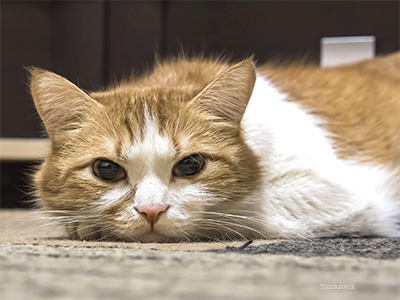
Overview
The pancreas has many functions, including the production and secretion of digestive enzymes and the production of insulin. Digestive enzymes are critical for food digestion, while insulin aids in the control of the metabolism and blood-sugar levels.
Pancreatitis means “inflammation” of the pancreas and acute means “sudden.” When the pancreas becomes inflamed, digestive enzymes that are normally inactive until they reach the small intestine become activated in the pancreas instead—resulting in pain and swelling as the pancreas actually begins to digest itself.
Risks
The recent use of specific tests for cats with suspected pancreatitis has helped the veterinary community understand that pancreatitis is a common disease in cats—much more widespread than once thought. It often is secondary to or accompanied by other disease, such as inflammatory bowel disease (IBD), diabetes, or liver disease.
Other causes of pancreatitis include infection, injury to the abdomen, ingestion of medications, and insecticides to control fleas and ticks, such as organophosphates. Pancreatitis can occur in any cat, but some breeds are more susceptible to the disease than others, including the Siamese. Additionally, pancreatitis is more common in middle-aged and older cats.
Symptoms
Cats instinctually hide the fact that they are sick, and cats with pancreatitis are no exception. Typically, they have vague signs, especially as compared to dogs, so it is not obvious they are sick.
If your cat has pancreatitis, you might observe the following:
- Lethargy (common)
- Dehydration (common)
- Decrease in appetite (common)
- Weight loss (common)
- Vomiting (less common)
- Diarrhea (less common)
- Abdominal pain (difficult to assess, assume present)
- Signs of fever (less common)
Diagnosis
Your veterinarian will take a complete history and perform a thorough physical exam of your pet. Additionally, she or he may recommend blood tests that will help to identify if your cat has acute pancreatitis. These may include:
- Chemistry tests to evaluate kidney, liver, and pancreatic disease and dysfunction, as well as sugar levels
- A complete blood count to evaluate for infection, inflammation, anemia, or other blood-related conditions
- Electrolyte tests to ensure your cat is not dehydrated or suffering from an electrolyte imbalance
- Pancreas-specific tests to help confirm or rule out the disease
- X-rays of the abdomen to survey organ size, shape, and positioning; also, to help detect foreign material and masses
- Abdominal ultrasound to image the pancreas and other major abdominal organs, and detect masses and other abnormalities such as free fluid, abnormal gas patterns, etc.
- Endoscopy to evaluate the lining of the stomach and intestinal tract
Treatment
The treatment of pancreatitis depends on the severity of the disease and may include:
- Hospitalization at the veterinary clinic
- Fluid therapy and electrolytes
- Pain medicine
- Antivomiting medication (antiemetics)
- Antibiotics, in severe cases or if a secondary bacterial infection is suspected
- Nutritional support
- Vitamin B12; a deficiency of this vitamin is common with pancreatitis and disease of the gastrointestinal (GI) tract
- Treatment of other concurrent diseases that may result secondarily to pancreatic inflammation, such as diabetes mellitus (“sugar diabetes”)
- Other medications, depending on your cat’s symptoms
Keep in mind that your veterinarian may recommend that some diagnostic tests, such as the CBC, chemistry tests, and pancreatic-specific tests, be repeated to monitor your cat’s progress during treatment.
Your veterinarian will suggest a treatment plan that is specific to your pet. Make sure you give all medications as directed and carefully follow any dietary recommendations. Keep a close eye on your friend; if she becomes lethargic or stops eating, call your veterinarian right away.
Prevention
While you can’t completely prevent acute pancreatitis, the following will help reduce the risk of developing the disease and ensure your cat's health and well-being:
- Keep your cat away from nonprescribed medications
- Be careful when using pesticides around your cat, especially organophosphates
If you have any questions or concerns, you should always visit or call your veterinarian – they are your best resource to ensure the health and well-being of your pets.
